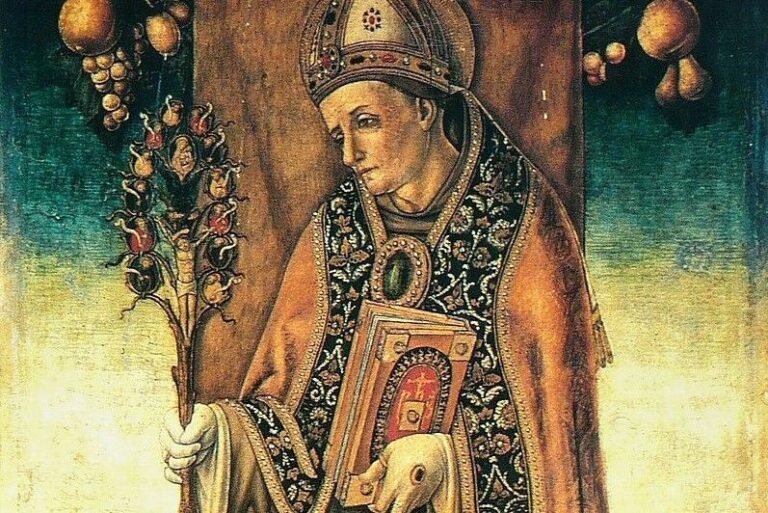03 September 2024
Saint Bonaventure, Part 4 | The Year of Prayer
By Joey Belleza, PhD (Cantab.)
We come to our final pair of stages in Bonaventure’s Itinerarium. The first pair of stages considered God as present in created things outside of us (extra nos), and the second pair considered God as imaged within us (intra nos). The last pair of stages considers God as supra nos—above us. The reflections here become even more speculative and theological, while also recognizing the limits of human language in describing God.
Instead of summarizing these stages sequentially, it may be helpful to describe them together. This pair considers God according to his two most proper names: Being (esse) and Goodness (bonum). Bonaventure represents these two names as the two cherubim facing each other atop the Ark of the Covenant. In the Old Testament, the space of the two cherubim was also known as the “mercy seat,” over which the presence of God hovered within the tabernacle. Just as the cherubim were close to yet beneath God, so do the names Being and Goodness represent the closest and most general human descriptions possible for God’s essence. Scripture and tradition use all sorts of metaphors for God; for example, God is described as a rock, a fortress, a warrior, and a king in various parts of the Bible. However, all metaphors limp and eventually fail. When we contemplate God as Being itself (what Thomas Aquinas described as ipsum esse) or as Goodness itself, we are using the most perfect names we have for God which are not subject to limitation and change. That the two cherubim face each other is taken by Bonaventure to mean that these most perfect names of Being and Goodness are meant to be contemplated together in preparation for the final ascent to God.
At the end of the sixth stage, one has ascended as far as possible by a maximum of human effort. However, all these stages remain preparatory in light of true union with God, which cannot be achieved by human effort alone but only received. After six chapters describing six stages of ascent, Bonaventure concludes the Itinerarium with a paradoxical seventh chapter describing the perfect and final ascent which was granted to Saint Francis when he received the stigmata. This involves a recognition that God is beyond anything that human words can adequately describe. It requires humility and self-denial to the point of becoming like Christ—and in the case of Francis, this was manifested in his own wounded body. Bonaventure makes the radical claim that, in this final passing over into God, “we must cease all intellectual operations, leaving behind all created images and earthly cares and desires.” Even contemplating God as Being and Goodness must also be left behind, if we are to truly rise beyond the cherubim and behold the seraphim, as did Francis. Let us close our series on Bonaventure by quoting the end of the Itinerarium’s seventh chapter, where Bonaventure explains what full conformity to Christ entails.
But if you ask how these things should come to pass, seek grace, not doctrine; desire, not understanding; the groaning of prayer, not the study of lectures; the bridegroom, not the university master; God, not man; the dark cloud [caliginem], not clarity; not light, but a fire totally enflamed and transferred into God with excessive anointings and most ardent affections. This fire is God, and this path is in Jerusalem, and Christ ignites it in the fervour of his most ardent passion, and he who truly perceives it, says: “My soul chooses hanging and my bones choose death” (Job 7:15). Whosoever loves this death can see God, for it is doubtlessly true: “No man shall see me and live” (Ex 33:20). Let us die [moriamur], therefore, and enter into the dark cloud; let us impose silence on our cares, desires, and phantasms; let us pass over [transeamus] with Christ crucified from this world to the Father, so that, with the Father shown to us, we might say with Phillip: “It is enough for us” (Jn 14:8); let us hear with Paul: “My grace is enough for you” (2 Cor 12:19); let us rejoice with David, saying: “My flesh and my heart fail, O God of my heart, and you O God are my portion always (Psalm 73:26). Blessed be the Lord forever, and let all the people say: let it be, let it be. (Ps 106:48)” Amen.
Saint Bonaventure of Bagnoregio, pray for us.

